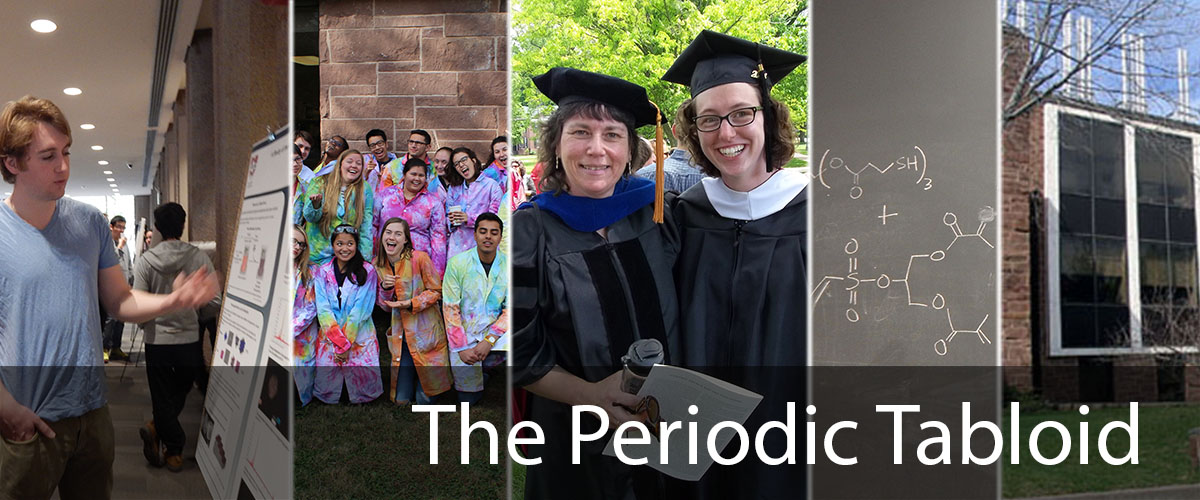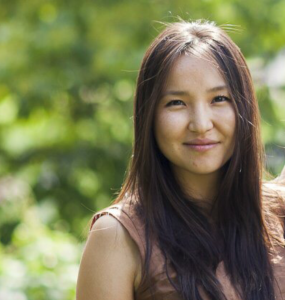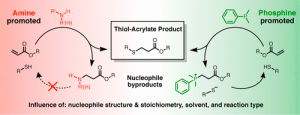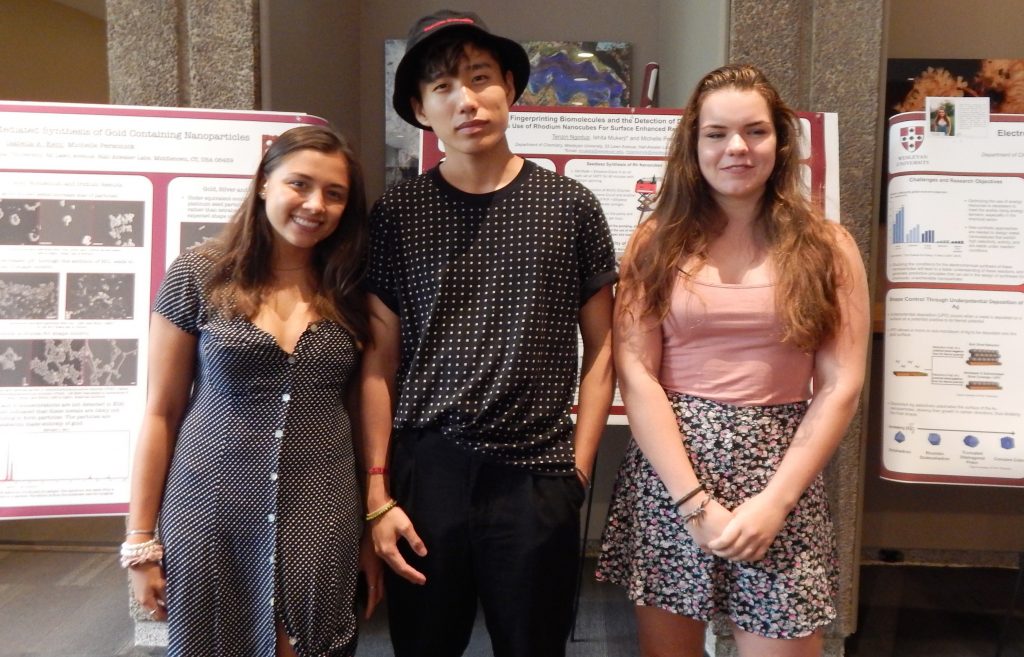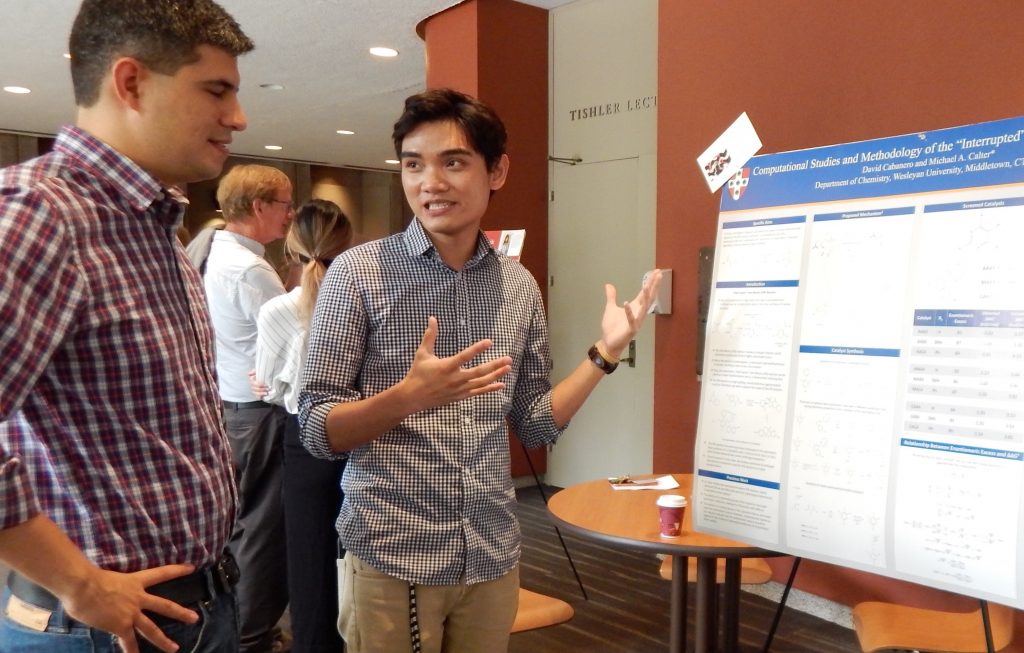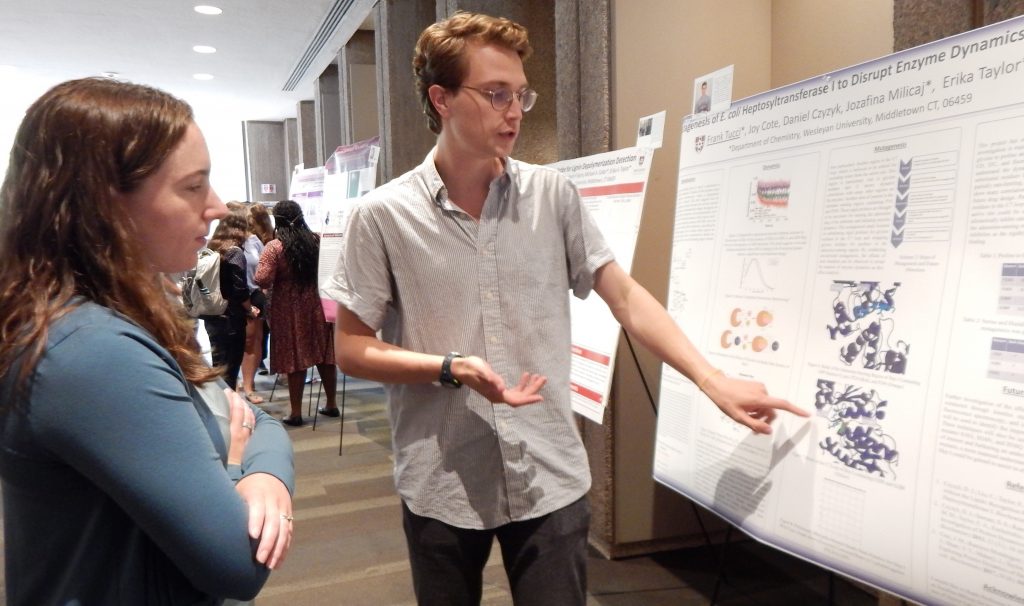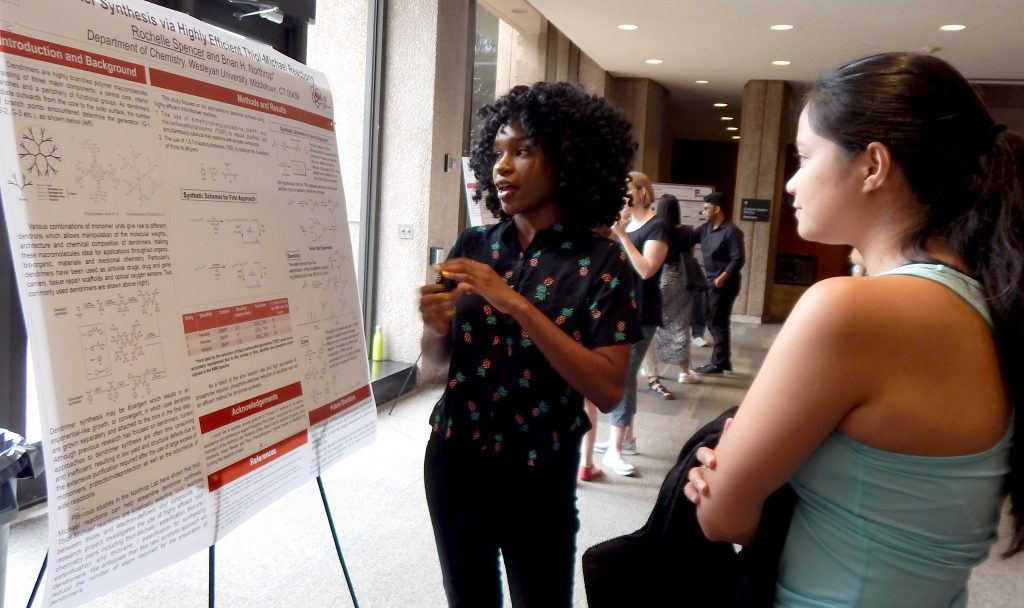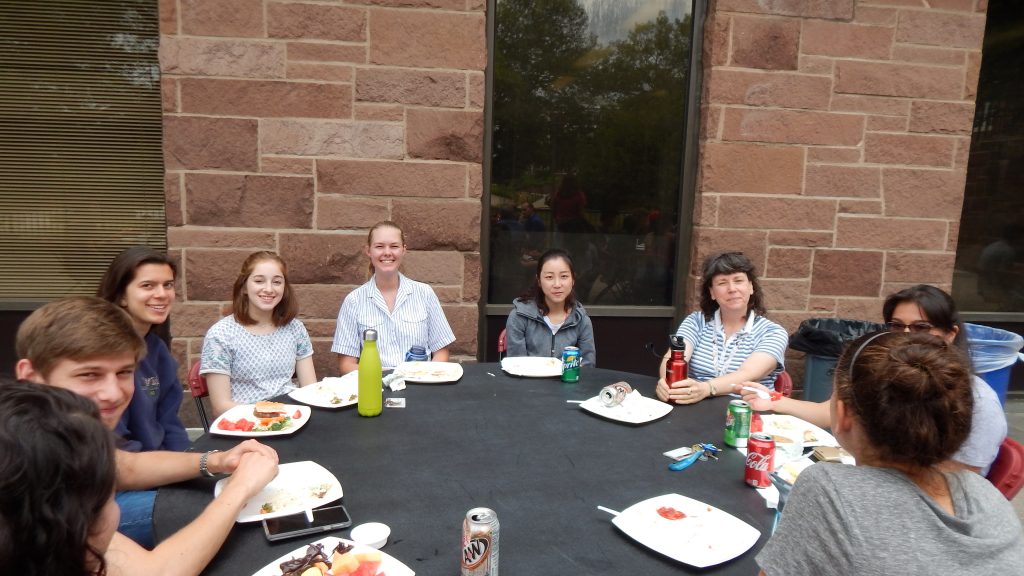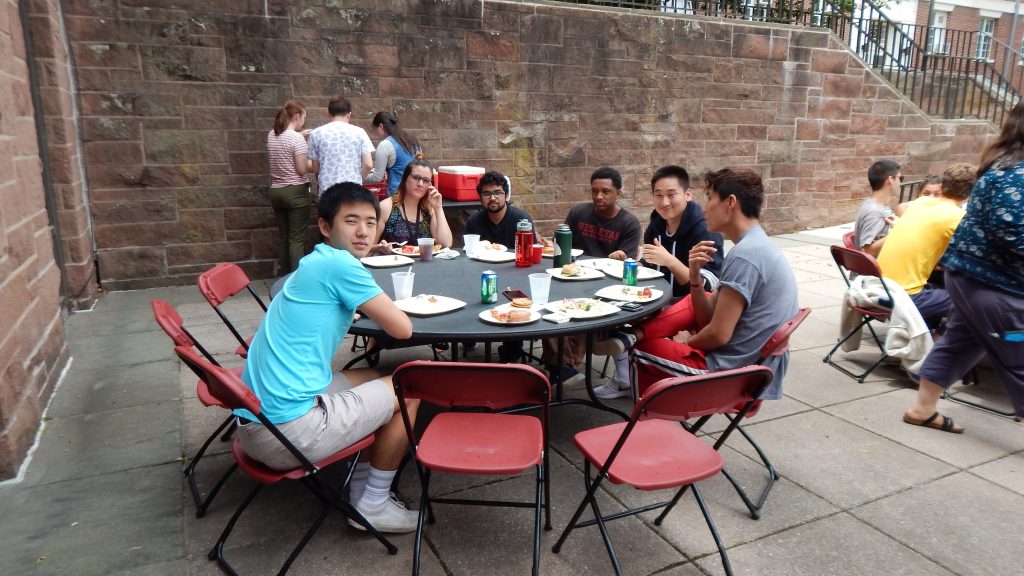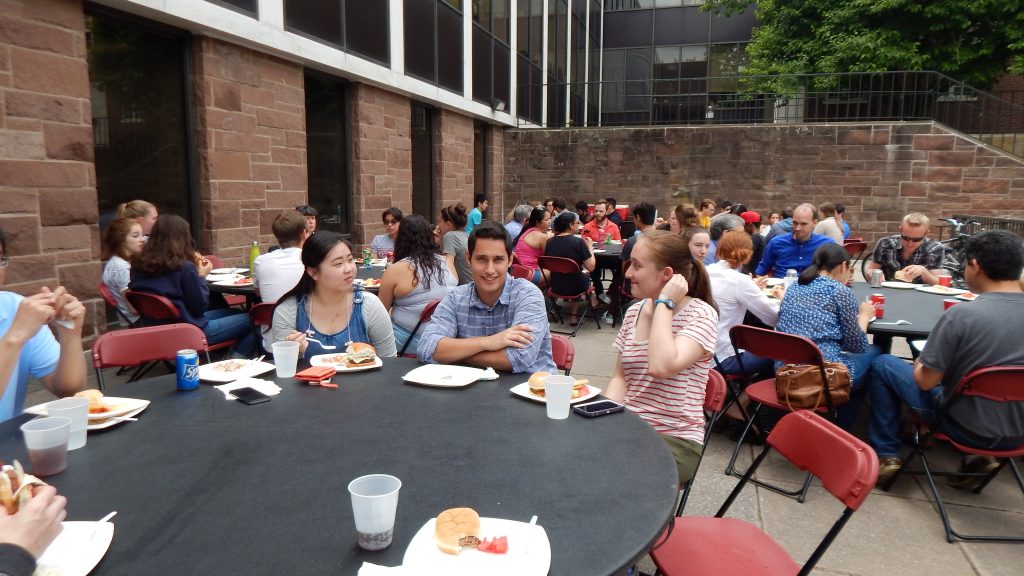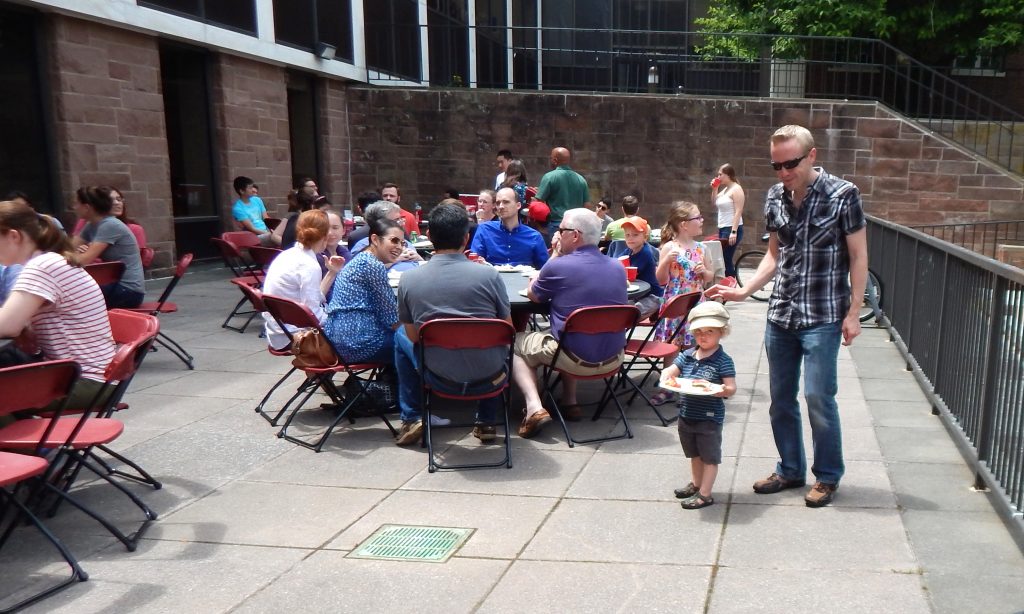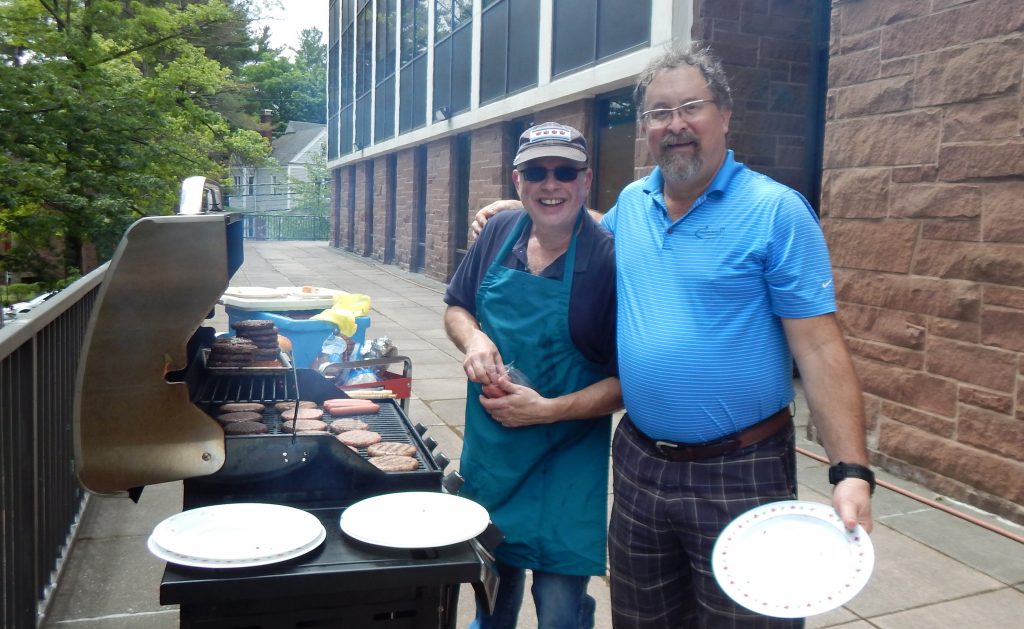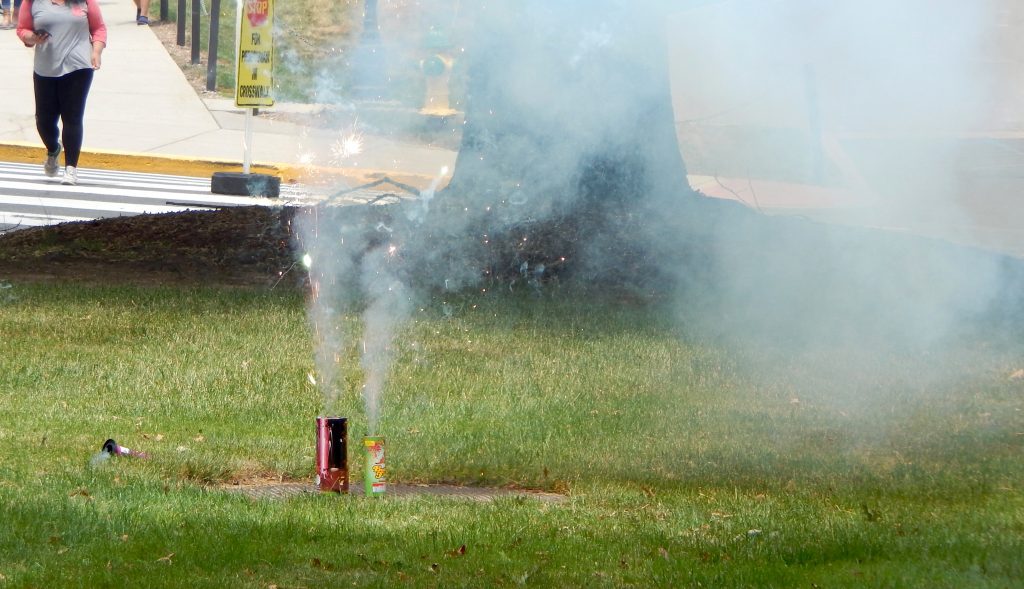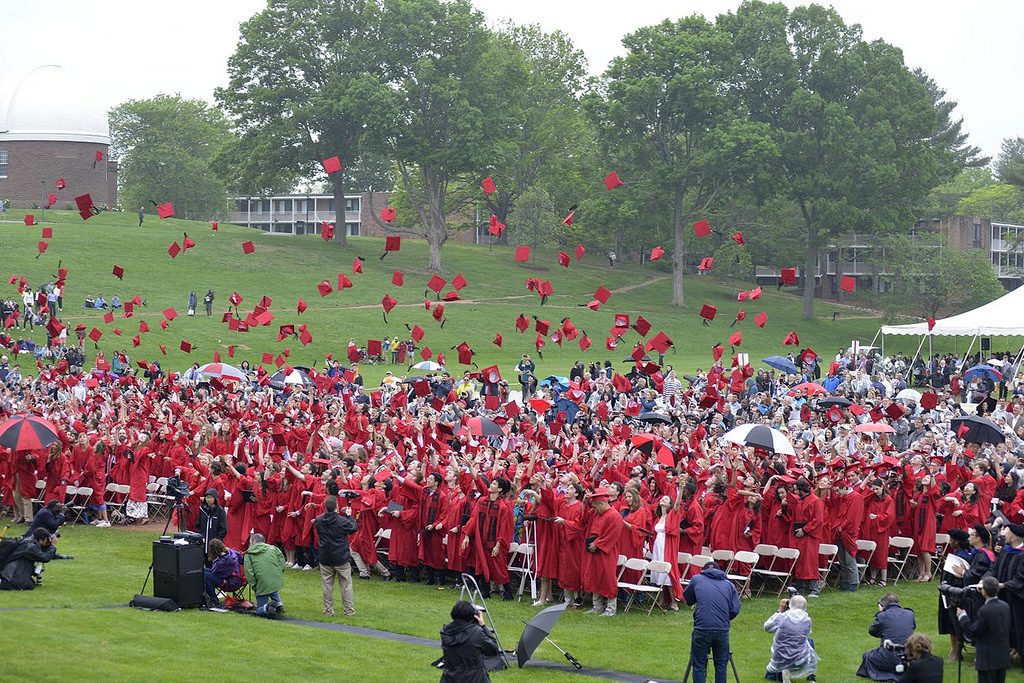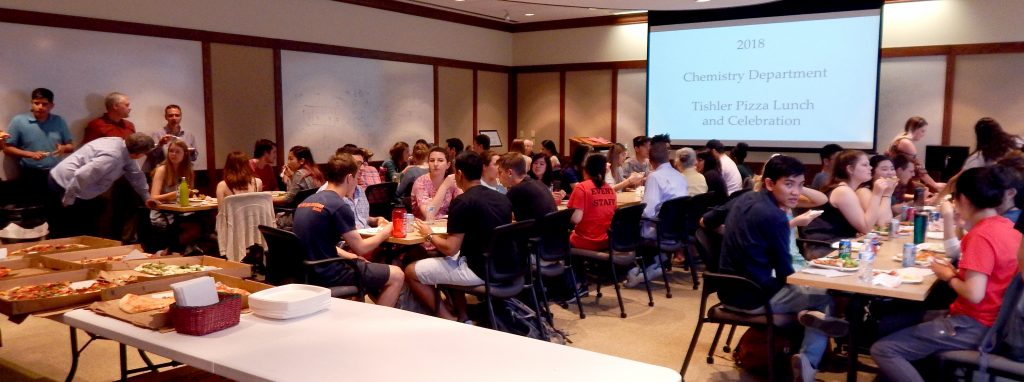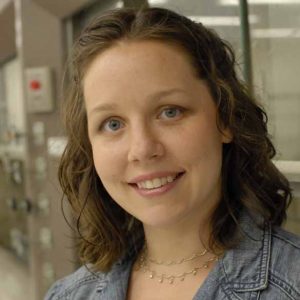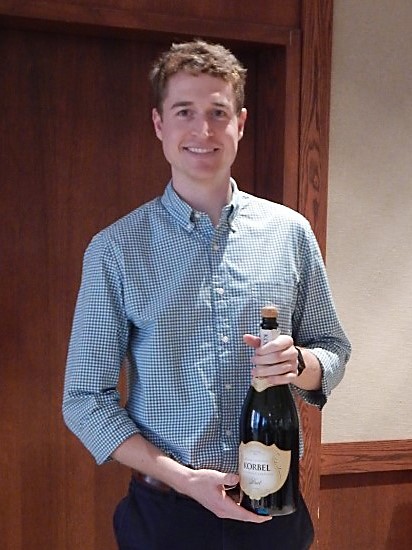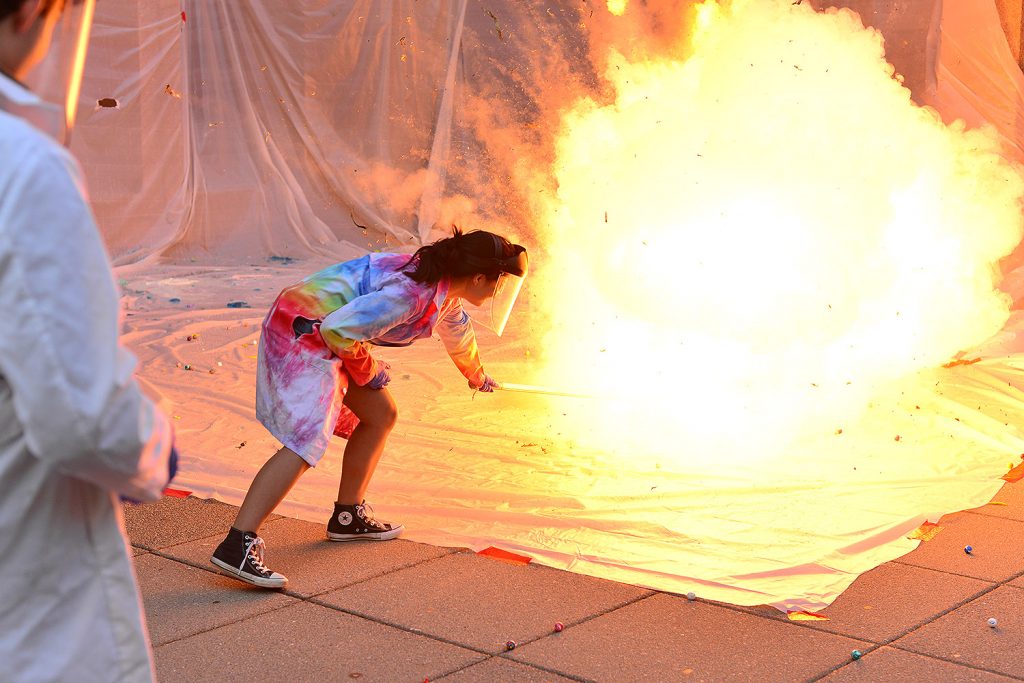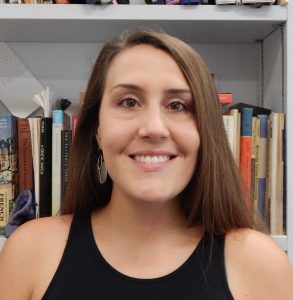
The Chemistry Department is delighted to welcome Dr. Alison O’Neil as an Assistant Professor of Chemistry and an affiliated member of the Neuroscience and Behavior Program. As the first neurochemist in the department, Prof. O’Neil adds a new strongly interdisciplinary dimension to research and teaching in Chemistry. Her recently renovated lab, in the space formerly occupied by Rex Pratt, will be using motor neurons derived from adult stem cells to study the protein aggregation that occurs in ALS and related diseases. This semester she is teaching new course, CHEM 323, Biochemistry of Neurodegenerative Disease.
Prof. O’Neil received her B.S. while doing proteomics research with Prof. Anna Tan-Wilson at Binghamton University. She then went on to join the Research and Development Team at LigoCyte Pharmaceuticals (now Takeda Vaccine) working on a vaccine for Norovirus. She then joined the Chemistry and Biochemistry department at Montana State University and earned her PhD under Prof. Trevor Douglas. Prof. O’Neil’s private sector and graduate work was based on designing materials based on viral capsid assemblies. For her post-doctoral studies, she worked on modeling and understanding neurodegenerative diseases using human stem cells at Harvard University. While at Harvard, Prof. O’Neil authored collaborative work with Google, Vertex, and Biogen Idec.
Prof. O’Neil’s interdisciplinary research will combine her biochemistry and stem cell training to investigate the role of protein aggregates in the progress of neurodegeneration. The Chemistry Department is very pleased to have her join us.

